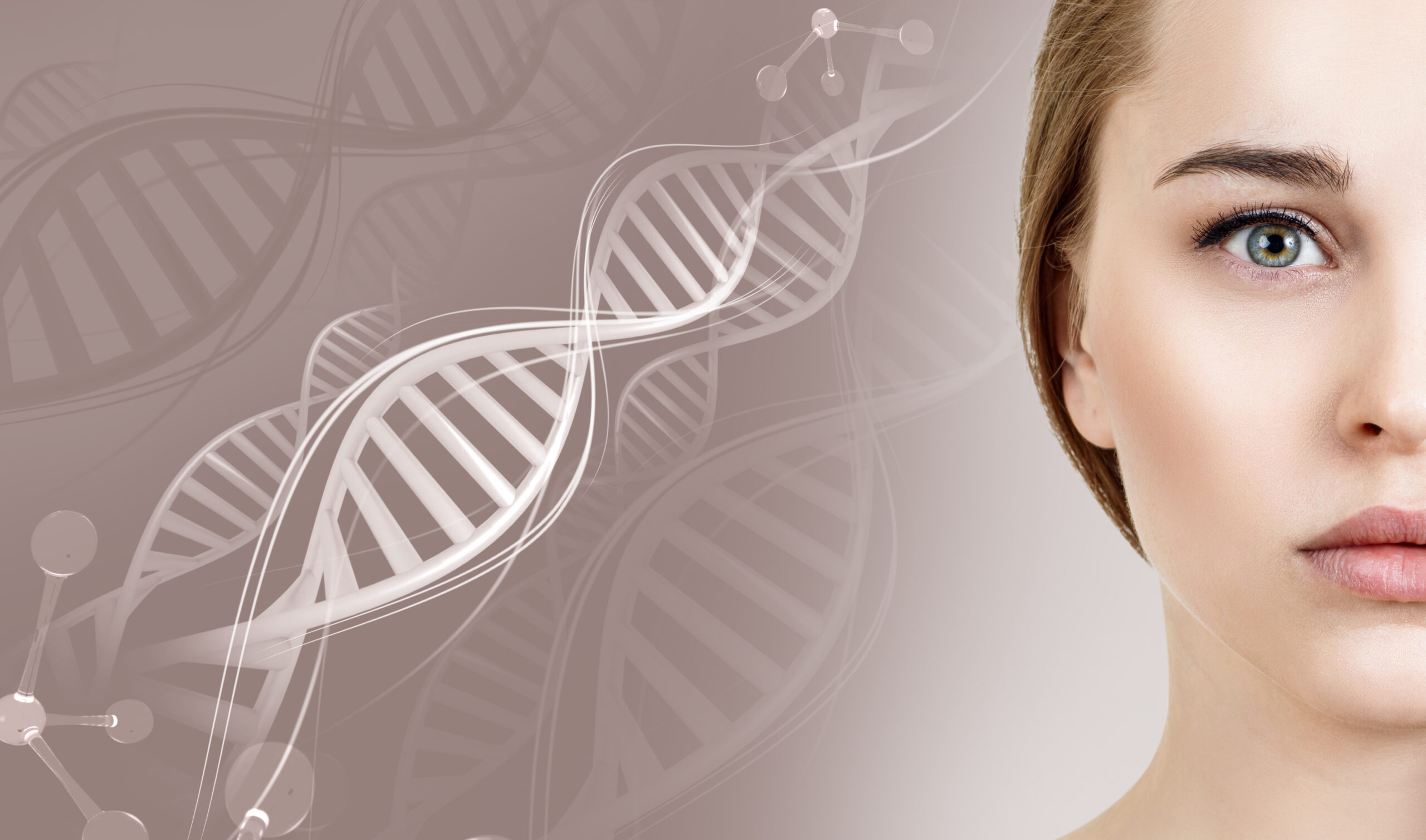Ditch the Guesswork and Find Your Personalized Path to Radiant Skin
Have you ever stared in the mirror, completely baffled by your skin’s behavior?
You might apply the latest topical treatment only to see minimal results.
Meanwhile, your friend raves about the same product; their skin seemingly transformed overnight.
What gives?
The truth is that healthy skin goes far deeper than what you see on the surface.
In functional dermatology, the key to cracking the code to genuinely radiant skin lies in unraveling the mysteries from the inside out. And this is where functional lab testing comes in.
Functional lab testing is a powerful tool that allows us to venture beyond the surface layer and identify the root cause of your unique skin concerns. It involves a series of tests, such as blood, urine, and stool tests, that provide a comprehensive view of your internal health. These tests identify any imbalances or deficiencies contributing to your skin issues.
By delving beyond the surface, we can craft a personalized plan that directly tackles the internal imbalances affecting your skin. This approach, empowered by functional lab testing, leads to radiant and healthy results that topical treatments alone can’t match.
What is Functional Lab Testing?
Unlike traditional dermatology, which often focuses on treating symptoms, functional dermatology takes an integrative approach.
We consider your skin a reflection of your overall health, a window into what’s happening beneath the surface. Functional lab testing allows me to assess various aspects of your internal environment that can impact your skin’s health.
Unlike a basic blood panel, these tests delve deeper, analyzing gut health, nutrient deficiencies, and hormonal imbalances. For example, they can identify an overgrowth of harmful bacteria in the gut, a deficiency in essential vitamins, or an imbalance in hormone levels. All of these imbalances can significantly impact your skin health.
- Gut Health: The gut microbiome, the community of microorganisms living in your digestive system, plays a vital role in overall health, including skin health. An unhealthy gut can contribute to inflammation, a key player in many skin conditions. (1)
- Nutrient deficiencies: Our skin relies on a steady supply of vitamins, minerals, and other essential nutrients to function optimally. Deficiencies in these can lead to dryness, irritation, and other issues. (2)
- Hormonal imbalances: Fluctuations in hormones like estrogen, testosterone, and cortisol significantly impact skin health, manifesting as acne, rosacea, or accelerated aging. (3)
Why Choose Functional Lab Testing for Your Skin Health
Analyzing these internal factors using functional lab tests can be a game-changer for your skin health journey.
Here are a few reasons why I choose to use functional lab testing to help my patients achieve a lasting, healthy glow:
- Personalized approach: I can develop a customized treatment plan tailored to your unique needs by identifying the underlying imbalances contributing to your skin concerns.
- Proactive intervention: Functional testing helps me identify potential issues before they manifest into full-blown skin problems. This early intervention paves the way for better long-term outcomes, giving you peace of mind about your skin health.
- Treating the root cause: Instead of masking symptoms with topical treatments, functional testing allows me to address the underlying issues causing them. This leads to more sustainable and long-lasting results.
3 Functional Lab Tests for Radiant Skin
I aim to move beyond simply treating symptoms and focus on achieving my patients’ long-lasting, radiant skin health.
To accomplish this, I utilize a targeted approach that begins with a comprehensive understanding of your internal environment.
Here, functional lab testing plays a crucial role!
These tests provide valuable insights into the hidden imbalances contributing to your skin concerns.
To comprehensively understand your health and its impact on your skin, we start with three key functional lab tests: the GI Map, the Organic Acids Test (OAT), and the DUTCH test. This thorough approach ensures we leave no stone unturned in our quest for glowing skin.
Let’s take a closer look at each of these tests so you can understand how they help me uncover the secrets to your glowing skin:
GI Map Test
The gut microbiome is vital in overall health, including skin health.
An imbalance in this delicate ecosystem can lead to chronic inflammation, a significant cause of many skin conditions, such as eczema, acne, and rosacea.
The GI Map test provides a detailed analysis of your gut health, revealing:
- Microbial Balance: This assesses the relative abundance of beneficial and harmful bacteria, helping identify potential dysbiosis (imbalance) in the gut microbiome.
- Parasite and Pathogen Detection: The test screens for the presence of parasites, fungi, and other pathogens that can disrupt gut health and contribute to skin problems.
- Markers of Inflammation: The GI Map test analyzes markers like calprotectin and zonulin that indicate gut inflammation, a key player in various skin conditions.
- Digestive Function: The test assesses how well your body digests and absorbs nutrients, which can impact the health and appearance of your skin.
The GI Map test provides a comprehensive picture of your gut health, empowering us to develop a personalized plan to address any imbalances.
This might involve dietary modifications, targeted supplementation, and strategies to promote a healthy gut microbiome, which in turn contributes to healthier, more radiant skin.
Organic Acids Test (OAT)
Our bodies are constantly working to eliminate toxins and waste products. However, a sluggish detoxification system can lead to the buildup of these toxins in the body, manifesting as acne, breakouts, or dullness on the skin.
The Organic Acids Test (OAT) offers a window into your body’s ability to detoxify by analyzing the levels of various organic acids and their byproducts in your urine.
These acids are produced during the breakdown of carbohydrates, fats, and proteins, and their levels can indicate potential issues with detoxification pathways.
The OAT can reveal:
- Mitochondrial Function: Mitochondria are the powerhouses of your cells, and their health is crucial for proper detoxification. The OAT can provide insights into mitochondrial function, impacting your skin’s ability to regenerate and stay healthy.
- Organic Acid Levels: Elevated levels of certain organic acids can indicate specific blockages in detoxification, allowing us to pinpoint areas needing support.
- Oxidative Stress: Chronic inflammation and toxin overload can contribute to oxidative stress, which damages skin cells and accelerates aging. The OAT can help assess oxidative stress levels and guide strategies to reduce it for healthier skin.
Understanding your body’s detoxification capabilities through the OAT allows me to optimize your elimination pathways and create a personalized plan to support your body’s natural detoxification processes, leading to a clearer, more vibrant complexion.
DUTCH Test
Hormones are critical in regulating numerous bodily functions, including skin health.
Fluctuations in hormones like estrogen, testosterone, and cortisol can significantly impact the appearance and health of your skin.
For example, hormonal imbalances can contribute to acne breakouts or rosacea flare-ups.
The DUTCH Test is a comprehensive hormonal test that goes beyond just blood levels. It analyzes various metabolites, providing a complete picture of your hormonal activity.
The DUTCH Test can reveal:
- Hormonal Balance: The DUTCH Test assesses levels of sex hormones like estrogen, testosterone, and progesterone, as well as stress hormones like cortisol. This allows me to identify potential imbalances that might be affecting your skin.
- Hormone Activity: The test analyzes hormone breakdown products, offering insights into how your body utilizes these hormones. This information is crucial for developing a personalized approach to optimizing hormonal health.
- Free vs. Bound Hormones: The DUTCH Test differentiates between free hormones readily available for action and those bound to inactive proteins. This distinction helps determine the actual biological activity of your hormones.
Important Considerations
Functional lab testing for skin health is a valuable tool, but it’s important to remember:
- It’s not a one-size-fits-all approach: The specific tests will vary depending on your needs and skin concerns.
- Interpretation matters: The results of these tests need to be interpreted by a qualified functional practitioner who can understand the bigger picture of your health and translate the findings into a personalized treatment plan.
- Lifestyle plays a role: Functional testing is just one piece of the puzzle. A healthy diet, stress management, and proper sleep hygiene contribute to healthy skin.
Taking the Next Steps Toward Radiant Skin
The three functional lab tests we discussed – GI Map, OAT, and the DUTCH test – offer a powerful starting point for unraveling the root causes of your skin concerns and achieving long-lasting skin health.
Proper skin health is a journey; sometimes, you need a guide.
Are you ready to ignite your skin’s natural radiance?
Grab your FREE ebook on Unlock Clearer Skin: 10 Pillars of Functional Dermatology You Need to Know.
Resources
1. “Gut–Skin Axis: Current Knowledge of the Interrelationship between Microbial Dysbiosis and Skin Conditions.” NCBI, 11 February 2021, https://www.ncbi.nlm.nih.gov/pmc/articles/PMC7916842/. Accessed 24 April 2024.
2. “Role of Micronutrients in Skin Health and Function.” NCBI, 1 May 2015, https://www.ncbi.nlm.nih.gov/pmc/articles/PMC4428712/. Accessed 24 April 2024.
3. Reichrath, Jörg. “Hormones and skin: A never-ending love story!” NCBI, https://www.ncbi.nlm.nih.gov/pmc/articles/PMC3256335/. Accessed 24 April 2024




